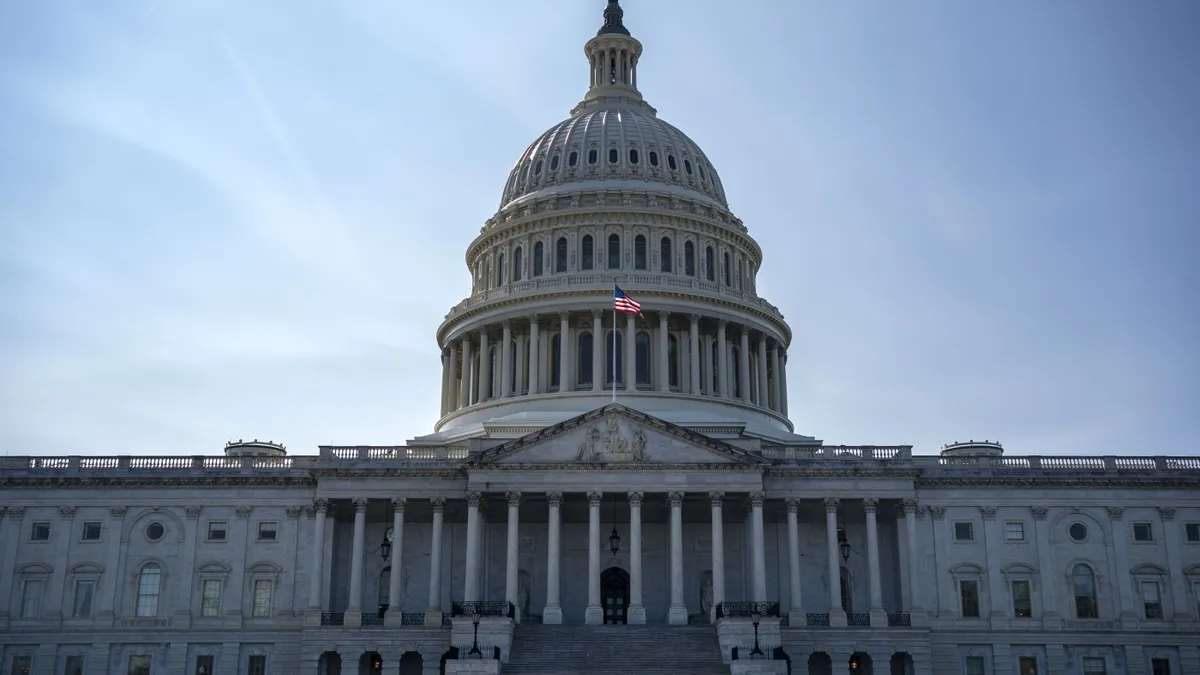
On Thursday, the House of Representatives narrowly approved a controversial piece of legislation aimed at eliminating the next two years of federal funding for public media outlets. This decision came directly at the behest of President Trump, who has consistently accused organizations such as NPR and PBS of harboring biases against conservative perspectives, furthering his broader campaign against mainstream media. The measure passed with a tight vote of 214 to 212, with two influential Republican lawmakers switching their votes from no to yes, effectively pushing the legislation over the finish line.
This legislation marks the first instance in which the Trump administration has requested Congress to revoke funding that had already been approved through annual spending bills. The proposed cuts reflect a total of $9.4 billion requested by the Office of Management and Budget, with the majority—$8.3 billion—targeted at foreign aid programs that address global public health, disaster assistance, and hunger relief. Additionally, $1.1 billion would be slashed from the Corporation for Public Broadcasting (CPB), which is responsible for distributing nearly all federal funds to local television and radio stations for the upcoming two fiscal years.
By law, this funding is intended to be approved in advance to protect public broadcasting from political influences over transient issues. Notably, this funding had been sanctioned earlier this year by both Republican-led chambers of Congress and received Trump's signature.
The CPB, which operates as a privately incorporated entity in Washington, D.C., is currently suing the Trump administration over attempts to exert control over its board. Following the vote, CPB, PBS, and NPR issued statements condemning the legislation. Katherine Maher, CEO and President of NPR, emphasized the immediate repercussions for Americans who depend on local, independent stations, particularly in rural and underserved areas. She stated, "If rescission passes and local stations go dark, millions of Americans will lose access to independent, nonprofit media, risking the emergence of news deserts."
Similarly, Paula Kerger, PBS's chief executive, highlighted the irreplaceable nature of public television services, asserting that if these cuts are finalized, they would have a devastating impact on PBS and smaller, rural member stations reliant on federal support.
A coalition of local public media officers, emergency officials, educators, and community members rallied against the bill, emphasizing that support for public media has historically been bipartisan. However, the notion of reducing government involvement in public media has increasingly resonated within conservative factions of the Republican party.
Despite the contentious atmosphere, the Republican majority managed to prevail on Thursday with a razor-thin margin, aided by the pivotal votes of Reps. Don Bacon from Nebraska and Nick LaLota from New York. Both lawmakers have previously diverged from party leadership on separate budget issues, indicating a complex intra-party dynamic.
During the heated debates leading up to the vote, House Majority Leader Steve Scalise emphasized that the bill enshrines President Trump's cuts to what he labeled "wasteful foreign aid initiatives" and "woke public broadcasting." Republicans voiced their objections, claiming that taxpayer money should not support biased media outlets. Ohio GOP Rep. Jim Jordan stated, "Don't spend money on stupid things and don't subsidize biased media."
In contrast, Democrats defended public broadcasting as vital for delivering essential services, particularly during emergencies. Texas Democratic Rep. Lloyd Doggett argued that NPR and PBS are under scrutiny precisely because they excel at providing truthful reporting, while House Minority Leader Hakeem Jeffries criticized the bill as "cruel," using a doll of the beloved children's character Elmo to symbolize the harm to children's programming across the country.
After the vote, Nevada Republican Rep. Mark Amodei, co-chair of a bipartisan caucus supporting public broadcasting, expressed his discontent with the outcome. He emphasized the need for further discussion before implementing cuts that could significantly impact public broadcasting stations, particularly in rural areas. "I would be doing a disservice to the thousands of rural constituents in my district if I did not fight to keep their access to the rest of the world and news on the air," he stated.
As the landscape of public media funding continues to evolve, some former Republican lawmakers acknowledge a shift in sentiment within the party toward skepticism and hostility regarding public broadcasting. Former Oregon Senator Gordon Smith noted that while he historically supported PBS, he believed the network needed to strive for greater political balance. Others, like former U.S. Rep. Charles Bass, pointed out that the debate surrounding public media funding has become increasingly divisive, influenced by cultural warfare and perceptions of bias.
Created in 1967, the CPB has a long history of overseeing federal grants to public television and radio stations. However, the ongoing debate over its funding reflects deeper political divides and changing perceptions of public broadcasting. As the legislation moves to the Senate, where it requires a simple majority to pass, the future of public media funding remains uncertain. Senate Majority Leader John Thune has indicated that the Senate will address the rescissions request soon, underscoring the continuing importance of this issue for millions of Americans who rely on public media for news and information.